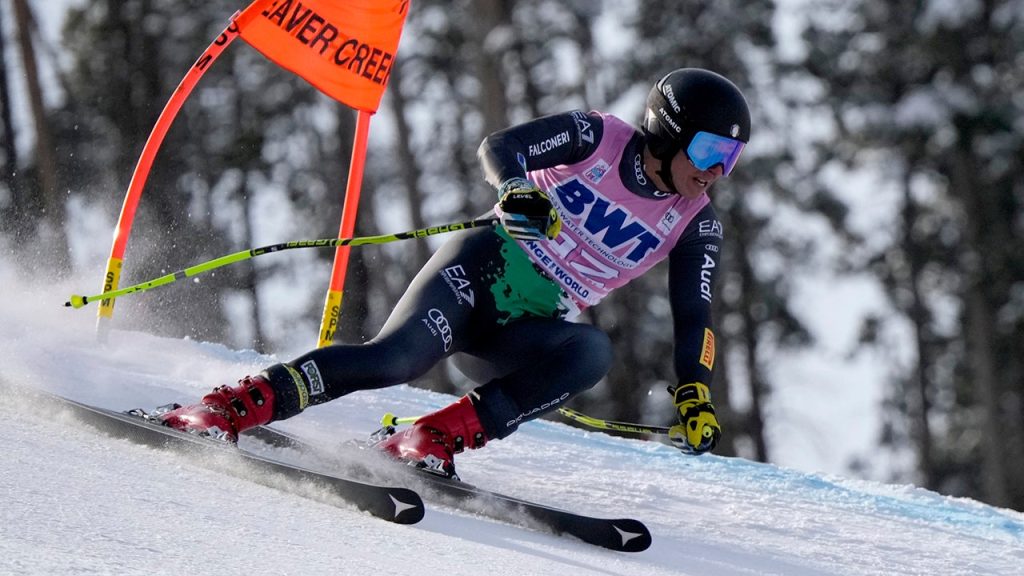Italian Skier Matteo Franzoso’s Tragic Death Shakes Winter Sports Community
The winter sports world is in mourning following the untimely death of Italian skier Matteo Franzoso, who passed away just days before his 26th birthday. Franzoso sustained a fatal head injury during a training session in La Parva, Chile, approximately 30 miles outside Santiago. The accident occurred on Saturday when Franzoso crashed into a fence while attempting what was described as a small jump. Despite immediate medical attention and being airlifted to an intensive care unit where doctors placed him in a medically induced coma, the young athlete succumbed to his injuries. According to the Italian Winter Sports Federation (FISI), Franzoso died as a result of severe head trauma and subsequent cerebral edema, never making it to his 26th birthday, which would have been celebrated on Tuesday.
This devastating loss comes less than a year after another tragic death in Italian skiing. In October 2023, 19-year-old Matilde Lorenzi also died following a fall during training. FISI President Flavio Roda expressed his profound grief, stating, “This is a tragedy for the family and for our sport. It’s a tragedy that brings us back to the state of mind we had just under a year ago, when Matilde Lorenzi passed away.” Roda emphasized the urgent need for improved safety measures in the sport, declaring it “absolutely essential to do everything possible to ensure that such incidents never happen again.” In this time of immense sorrow, he pledged the Federation’s full support to all athletes and coaches, while requesting respect for Franzoso’s grieving family.
Franzoso was a promising talent in the skiing world with notable achievements throughout his career. He had claimed victory in a super-G race on the second-tier Europa Cup circuit in 2021 and had placed fourth in downhill at the 2020 World Junior Championships. His World Cup experience spanned 17 races—11 in super-G and six in downhill events—with his career-best World Cup result being a 28th-place finish in a super-G competition in Cortina d’Ampezzo in January 2023. At the time of the accident, Franzoso was training alongside respected Italian team members including Dominik Paris, Christof Innerhofer, and Mattia Casse, preparing for the upcoming Milan-Cortina Olympics scheduled for February.
The tragedy raises serious questions about safety protocols in alpine skiing, a sport that continues to push the boundaries of human performance at extreme speeds on challenging terrain. Despite advances in equipment technology and safety measures, the inherent dangers of the sport remain evident. Racing down mountains at speeds often exceeding 80 mph, with minimal protection beyond helmets and padded suits, alpine skiers face considerable risks during both competition and training. Franzoso’s death, following so closely after Lorenzi’s, has intensified calls within the skiing community for a comprehensive review of safety standards and practices, particularly during training sessions when supervision and emergency response protocols may differ from official competitions.
The human cost of these tragedies extends far beyond the statistics. Franzoso was not merely an athlete but a young man with dreams, relationships, and a future ahead of him. His teammates, who were training alongside him in Chile, now face the emotional challenge of continuing their Olympic preparations while processing this profound loss. The psychological impact on athletes who witness or learn of such accidents cannot be understated, as they must somehow reconcile their passion for a sport they love with its potentially fatal consequences. For the coaches and support staff who work closely with these athletes, there is the added burden of responsibility and questioning whether more could have been done to prevent such a tragedy.
As the winter sports community comes to terms with this latest loss, Roda’s words resonate with particular poignancy. The Federation’s promise to remain close to Franzoso’s family “in every way necessary” acknowledges that the impact of such a loss extends far beyond the immediate aftermath. Parents who support their children’s athletic ambitions from a young age, through years of early mornings, financial sacrifice, and emotional investment, should never have to face the unimaginable pain of outliving them. As preparations continue for the Milan-Cortina Olympics, Franzoso’s memory will undoubtedly be honored by his teammates and the wider skiing community. However, the most meaningful tribute may ultimately be found in renewed commitments to athlete safety—ensuring that the passion and pursuit of excellence that define alpine skiing never again exact such a devastating price.


